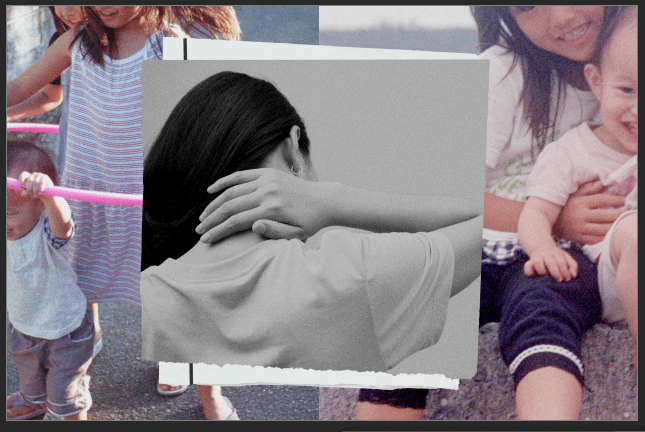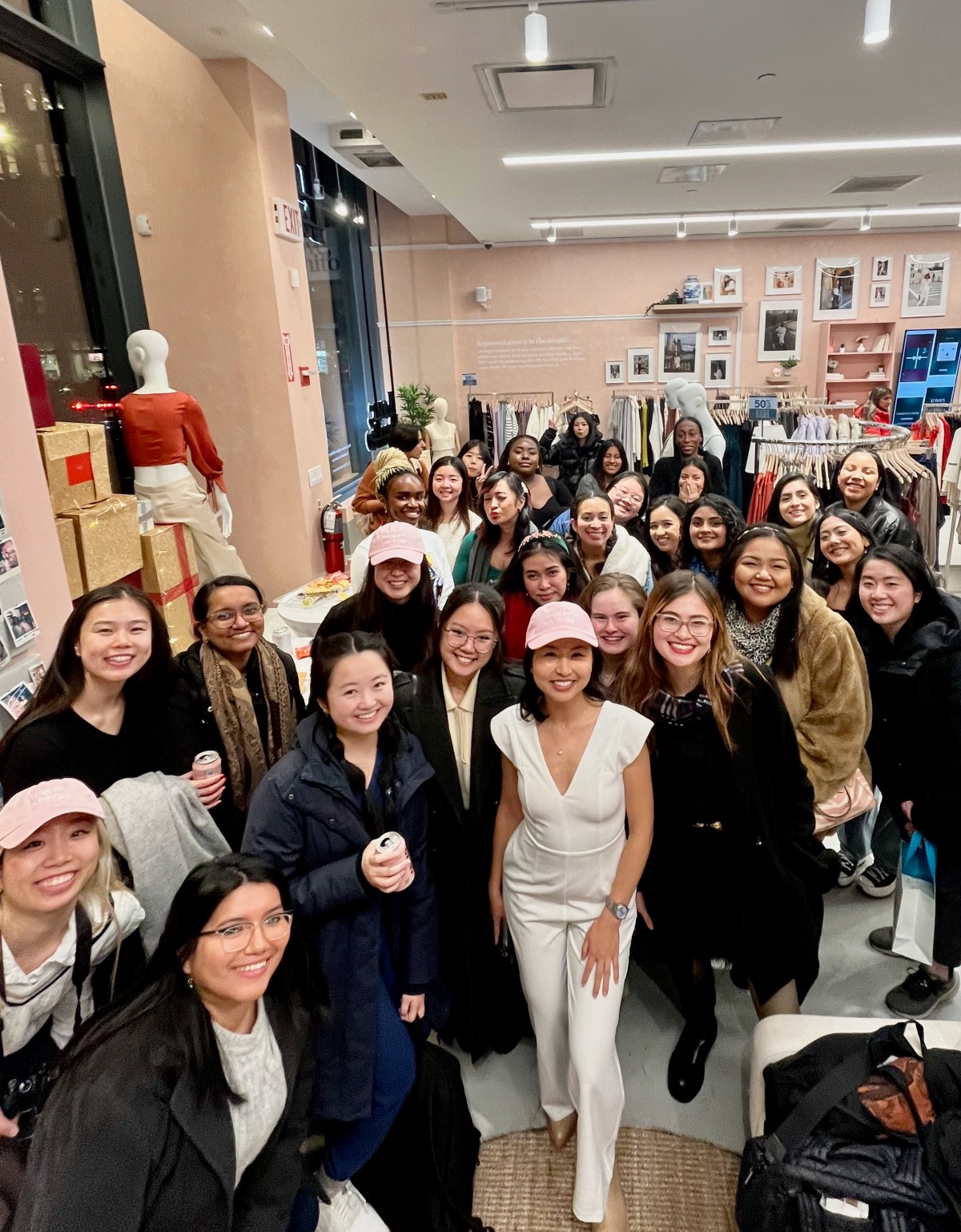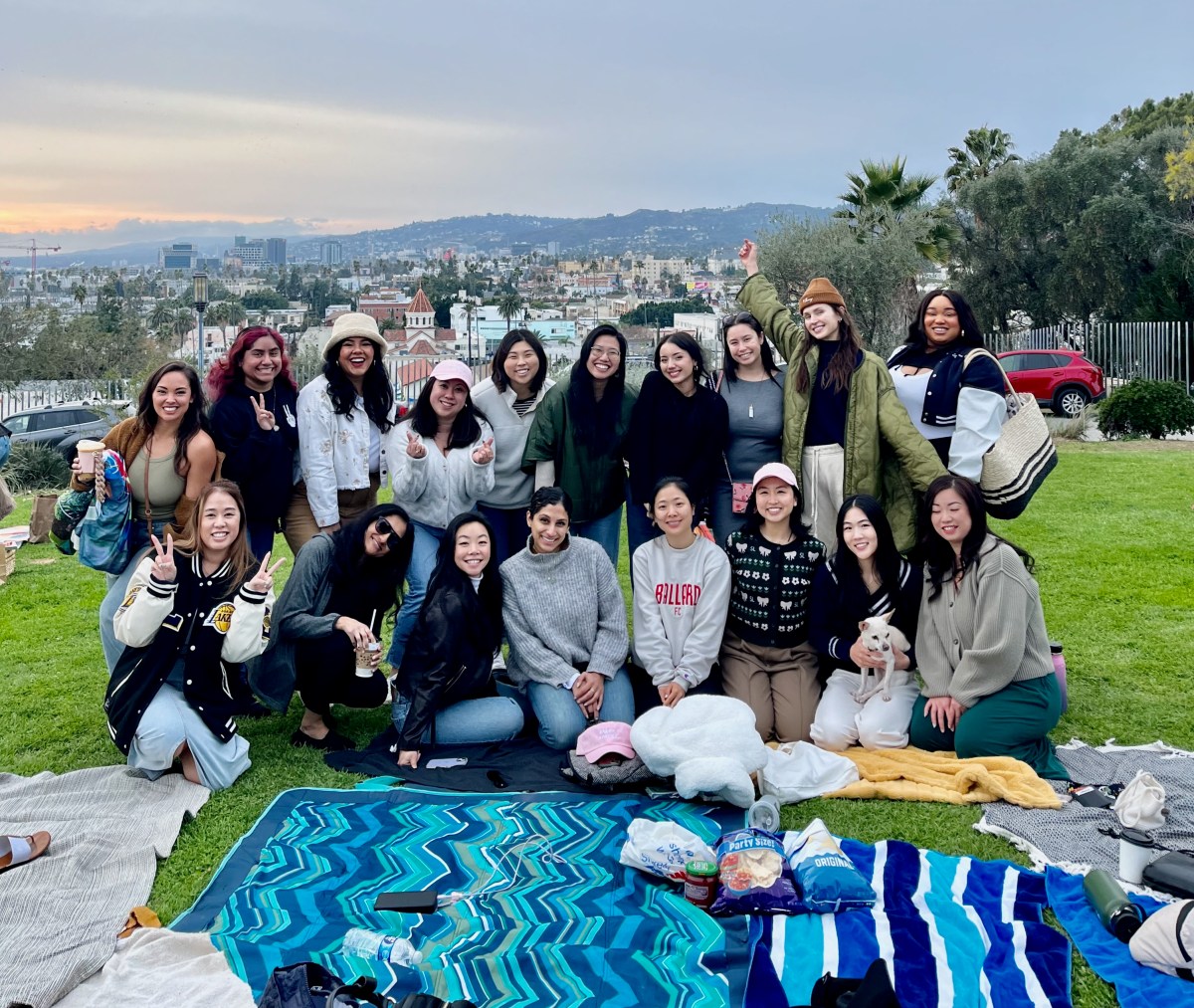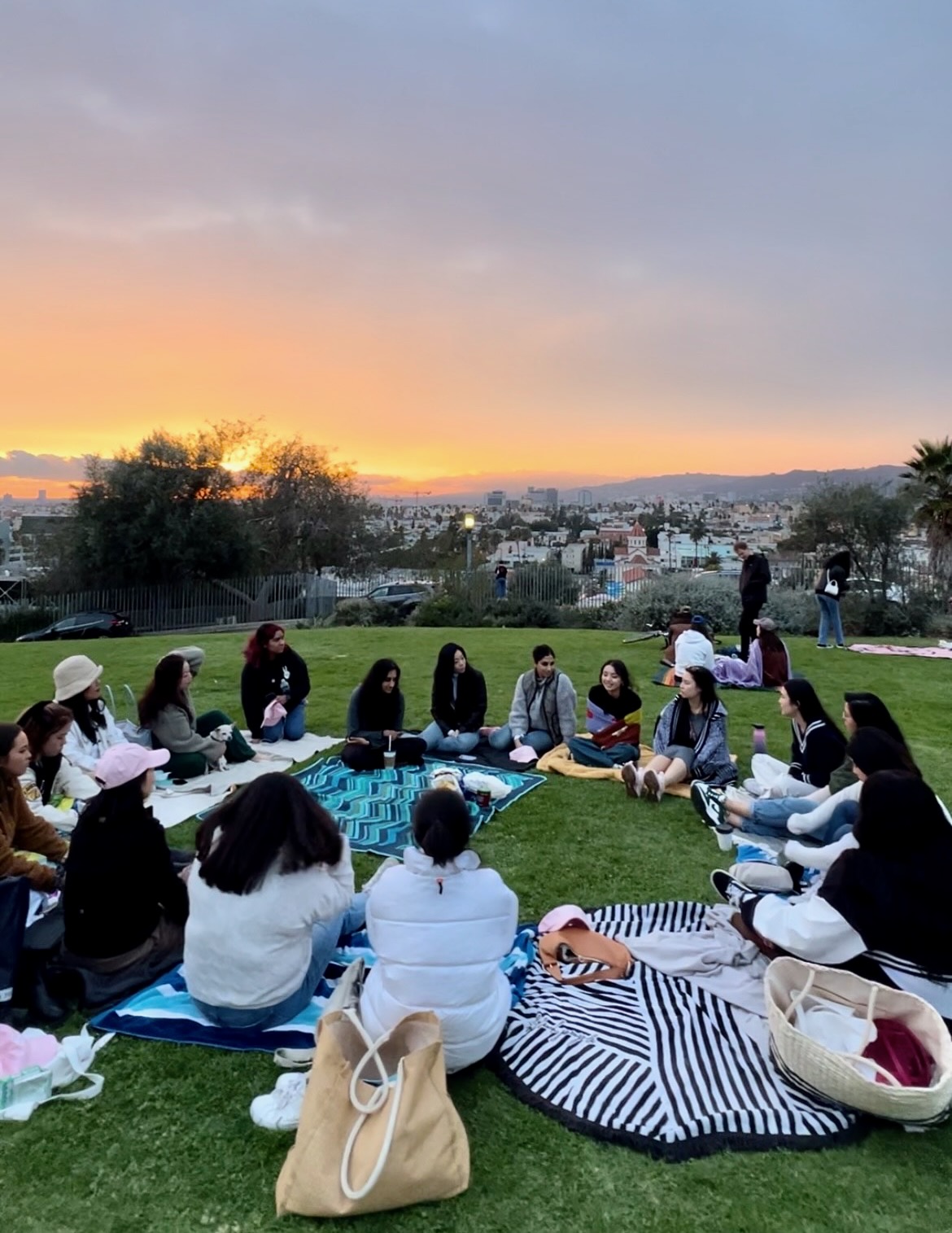
Dianne Roquia, 27, started taking on “eldest daughter duties” as a teenager. Since her Filipino immigrant parents didn’t understand how the U.S. school system worked, she had to figure out college application processes and financial aid forms for her and her younger sister. She began resenting how much everyone in the family depended on her. “I started questioning: Am I trapped in the eldest daughter mindset of having to figure everything out for everyone, or do I genuinely enjoy being the caretaker of my family?” Roquia said.
She had been following the viral #eldestdaughtersyndrome hashtag in late 2022 when the Eldest Daughter Club caught her interest. The Instagram account featured helpful, uplifting content specifically curated for eldest daughters, with personal stories and questions from founder Sherri Lu, whose parents were also Asian immigrants.
“I loved reading the comments from other eldest daughters,” Roquia said. “I didn’t realize that other people felt the same way I did, and that I wasn’t alone.”

Lu, who is in her mid-20s, started the Eldest Daughter Club in 2022 when she, too, was exploring her identity. While the account was originally a place for Lu to share her experiences, it quickly became a community-driven platform with thousands of online interactions from eldest daughters around the country. “I was constantly putting out my thoughts and learnings into the world,” Lu said. “As a result, I got a lot of feedback from people on what was resonating with them.”
Since the Eldest Daughter Club launched, it has gained over 200,000 followers, reached 2,000 Substack subscribers and organized sold-out in-person meetups in New York, New Jersey, Seattle, Honolulu, Los Angeles and Orange County. Mental health experts have taught members about self-compassion, strengthening mother-daughter relationships and navigating family dynamics during the holidays.
Lu said that the ultimate goal of the Eldest Daughter Club is to empower members to define, on their own terms, how they want to show up as a daughter and sibling. That means encouraging each other to let go of arbitrary expectations of being a “good daughter.”
“When people start meeting other eldest daughters, they start advocating for themselves,” Lu said. “A lot of people who find my account tell me that it was the space they didn’t know they needed.”
The unique challenges for eldest daughters of immigrants
Lucy Chen reached her limit when she was 18 years old. As the eldest daughter of immigrants from Hong Kong, she had to support her family through multiple bankruptcies. She was the one who attended her younger siblings’ and cousins’ parent-teacher conferences and wrote checks to pay the bills. On top of shielding her little sister from the family dysfunction, she had to maintain her own grades and extracurriculars on two hours’ sleep a night. Chen said she received messaging at an early age that she had to be the perfect eldest daughter and succeed at all costs.
The pressure came to a head when she started showing bipolar disorder symptoms and having panic attacks multiple times a day. “All the traits that I thought were making me successful were actually symptoms of my mental health issues,” Chen, now 33, said.

Over the past few years, discussions around “eldest daughter syndrome” have racked up over 31 million views on TikTok. Common signs of eldest daughter syndrome have been described as a strong sense of responsibility, guilt issues, overachieving and struggling with setting boundaries. But often missing in these early online conversations was how the eldest daughters of immigrants have specific cultural challenges that can amplify these traits.
Soojin Lee and Linda Yoon, therapists and founders of the Asian American mental health group Yellow Chair Collective, said that many of their eldest child clients face a unique kind of pressure from juggling multiple value systems: collectivist Eastern norms versus Western values of individualism. In some community-based cultures of immigrants, the firstborn has a special place in the extended family, bearing the weight of the family name and legacy. “As soon as there’s the first birth in the household, the eldest child pressure begins,” Lee said. She said that eldest children often break cultural or household rules to pave the way for their younger siblings, and that parents also admit to going easier on their second or third child.
Add to that pressure a layer of gender norms. Because women are expected to be caregivers, eldest daughters take over the burden — emotionally and physically — of caring for the elders in the family. Yoon said immigrant parents can face a “stuckness,” where they are “trapped in survival mode, where the focus is primarily on meeting basic needs rather than emotional well-being,” she said. “It can also mean immigrant families are ‘stuck’ holding on to the traditions, values, and perspectives from the time they left, causing a disconnect between the generations who grow up in the new country and those who are still rooted in the past.” She said eldest daughters often feel pressured to support their families through these challenges.

In February, Lee and Yoon taught a virtual workshop on self-compassion for dozens of Eldest Daughters Club members. They said that striving for perfectionism, and the inevitable self-criticism that follows, are common behaviors for eldest daughters of immigrant households — which is why self-compassion is a crucial first step toward releasing any blame or shame. “We see over and over again that adult children of immigrants are burnt out from driving themselves towards the idea of success,” Lee said.
Lee and Yoon, Korean American therapists who are eldest daughters themselves, explained that the discouragement from displaying any negative thoughts can lead eldest daughters to suffer from secret-keeping and isolation. “We often believe we shouldn’t show any emotions besides joy, to preserve others’ comfort,” Lee said. “We’re taught from our cultural backgrounds that we have to hide ourselves.” That can lead to dangerous breaking points and culminate in mental health issues like the ones Chen experienced.
After her breakdown, Chen began a decade-long process of meeting with psychologists and moved to Boston to create some distance from her family. This year, she attended Los Angeles and Orange County Eldest Daughter Club meetups, where she said she met other eldest daughters she could look up to. “Part of being the oldest is that there’s no one above you to serve as a role model,” Chen said. “But everyone in that room shared so many similar attributes and could give each other advice.”
At the meetups, Lu asked Chen when she realized she had the power to make choices about her own life. “It was when I started solo traveling,” she said. “Everything I used to do was for my family, but this is for me and my well-being.”
Charting their own paths as eldest daughters
Roquia met other eldest daughters like Chen at the Orange County meetup in March, where they sat on picnic blankets in a circle and watched the sun set over the park. She asked the group for advice on letting go of certain eldest daughter duties, so she could establish more independence from her parents. One attendee proposed Roquia set clear examples of what she could or couldn’t help her parents with. Another suggested she step in to help her parents only when needed, instead of automatically jumping in to help with every task. It was the push Roquia needed to create a plan with her therapist to move out.
Chen, too, is on her own journey after becoming a “choice mom,” or a woman who decides to have a child on her own. She said being an eldest daughter initially made her terrified of starting a family, but she knows she can instill the values she wants as a parent — like being true to yourself instead of being what others want you to be. “The future that my kids are going to have is going to look different,” Chen said. “There are so many different types of families, and different versions of success, and my family will be about getting to choose what they want in the world.”
Despite the challenges, Lu said she wants to help members find joy in being eldest daughters and is planning more virtual and in-person meetups this year. She also recently started a conversation with her mother about what they wanted their relationship to look like. “We’re both eldest daughters of eldest daughters,” Lu said. “My mom doesn’t have all the answers either, but she’s capable of learning and growing alongside me.”



